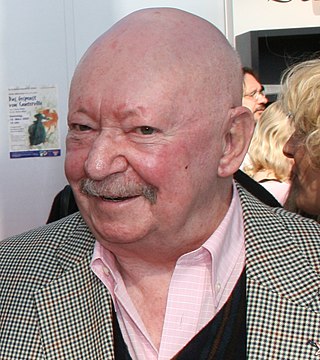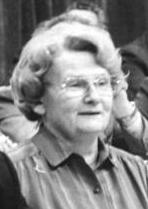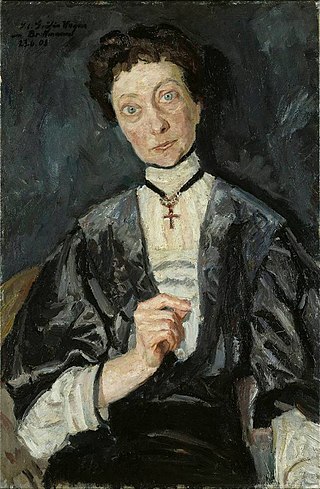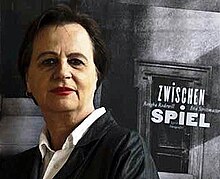Mascha Kaléko was a German-language poet.

Alfred Mombert was a German poet.

Günter Kunert was a German writer. Based in East Berlin, he published poetry from 1947, supported by Bertold Brecht. After he had signed a petition against the deprivation of the citizenship of Wolf Biermann in 1976, he lost his SED membership, and moved to the West two years later. He is regarded as a versatile German writer who wrote short stories, essays, autobiographical works, film scripts and novels. He received international honorary doctorates and awards.

Claire Waldoff, born Clara Wortmann, was a German singer. She was a famous kabarett singer and entertainer in Berlin during the 1910s to the 1930s, chiefly known for performing ironic songs in the Berlin dialect and with lesbian undertones and themes.

Eva Strittmatter was a German writer of poetry, prose, and children's literature.

Wolfgang Benz is a German historian from Ellwangen. He was the director of the Center for Research on Antisemitism of the Technische Universität Berlin between 1990 and 2011.

Werte der deutschen Heimat originally Werte der Deutschen Heimat and, between 1970 and 1990 called Werte unserer Heimat, was a series of publications by former East German Academy of Sciences at Berlin, that was published by Akademie-Verlag Berlin and included more than 50 volumes. The work was undertaken by the Academy’s Local History Working Group within the Institute for Geography and Geo-ecology.

Eva-Maria Hagen was a German actress and singer. She was known as the "Brigitte Bardot of the GDR" but was banned from performance for political reasons.

Angelika Schrobsdorff was a German writer.

Joachim Heinrich Wilhelm Wagener was a German banker and patron of the arts. His collection formed the initial nucleus of the Alte Nationalgalerie in Berlin.
Klaus Pohl was an Austrian stage and film actor.

Gerhard Zwerenz was a German writer and politician. From 1994 until 1998 he was a member of the Bundestag for the Party of Democratic Socialism (PDS).

Karl Lorenz Rettich was a German landscape artist and draftsman.

Ursula Ragwitz is a former senior official of the ruling East German Socialist Unity Party. She started her career as a primary school teacher, and rose to become a member of the powerful Party Central Committee between 1981 and 1989, undertaking various leadership roles in respect of the country's highly politicised culture sector.
Christian Friedrich Baz was a German legal scholar, a representative at the Duchy of Württemberg's state convention or 'Landtag' and from 1796 to 1805 mayor of Ludwigsburg. Born in Stuttgart, he supported the Age of Enlightenment and was open to French Revolutionary ideals, backing the individual freedom and rights of Württemberg's citizens. He was one of the landtag's reformers and soon became a radical and an opponent of Grand Duke Frederick. He was arrested twice and spent almost two years imprisoned in the Hohenasperg, Schloss Solitude in Stuttgart and another fortress in Bohemia. He died in 1808 in Waiblingen.

Hoheneck Women's Prison was a women's correctional facility in operation between 1862 and 2001 in Stollberg, Germany. It became most notable as a detention facility for female political prisoners in East Germany. The prison was designed to hold up to 600 inmates, however, as many as 1,600 were detained there.

Augusta ("Aga") Clara Elisabeth Gräfin vom Hagen was a German painter, author and art patron.
Hagen Kunze is a German journalist, music critic and playwright.

Ewald Grothe is a German historian. Since 2009 he has been an extraordinary professor at the Bergische Universität Wuppertal and since 2011 he has been head of the Archive of Liberalism of the Friedrich Naumann Foundation for Freedom in Gummersbach.

Mithu Melanie Sanyal, also known as Mithu M. Sanyal, is a German academic in Cultural studies, a journalist and author. Her main focuses are on feminism, racism, pop culture and postcolonialism.
















